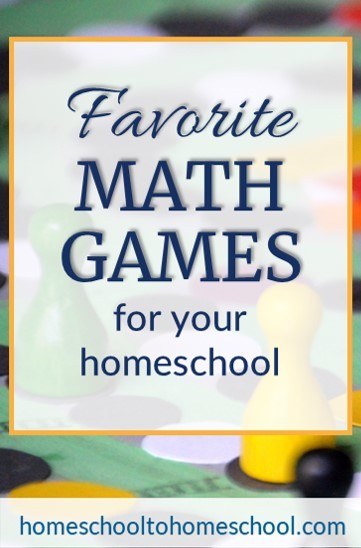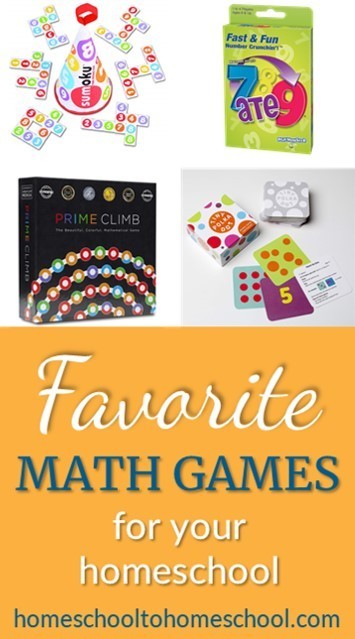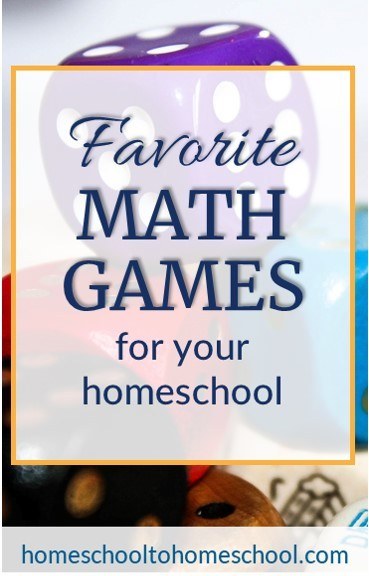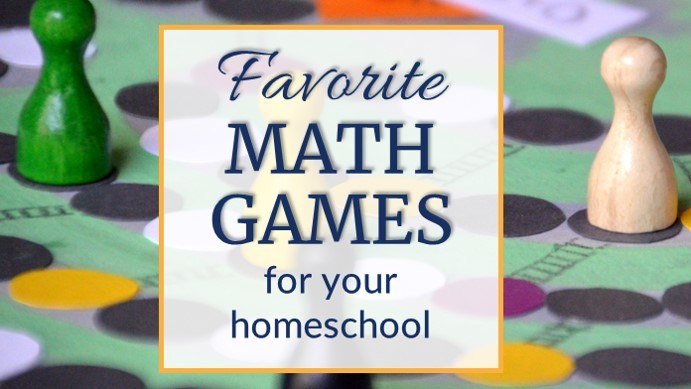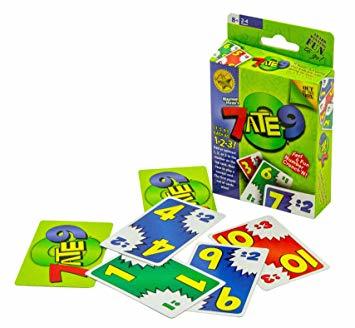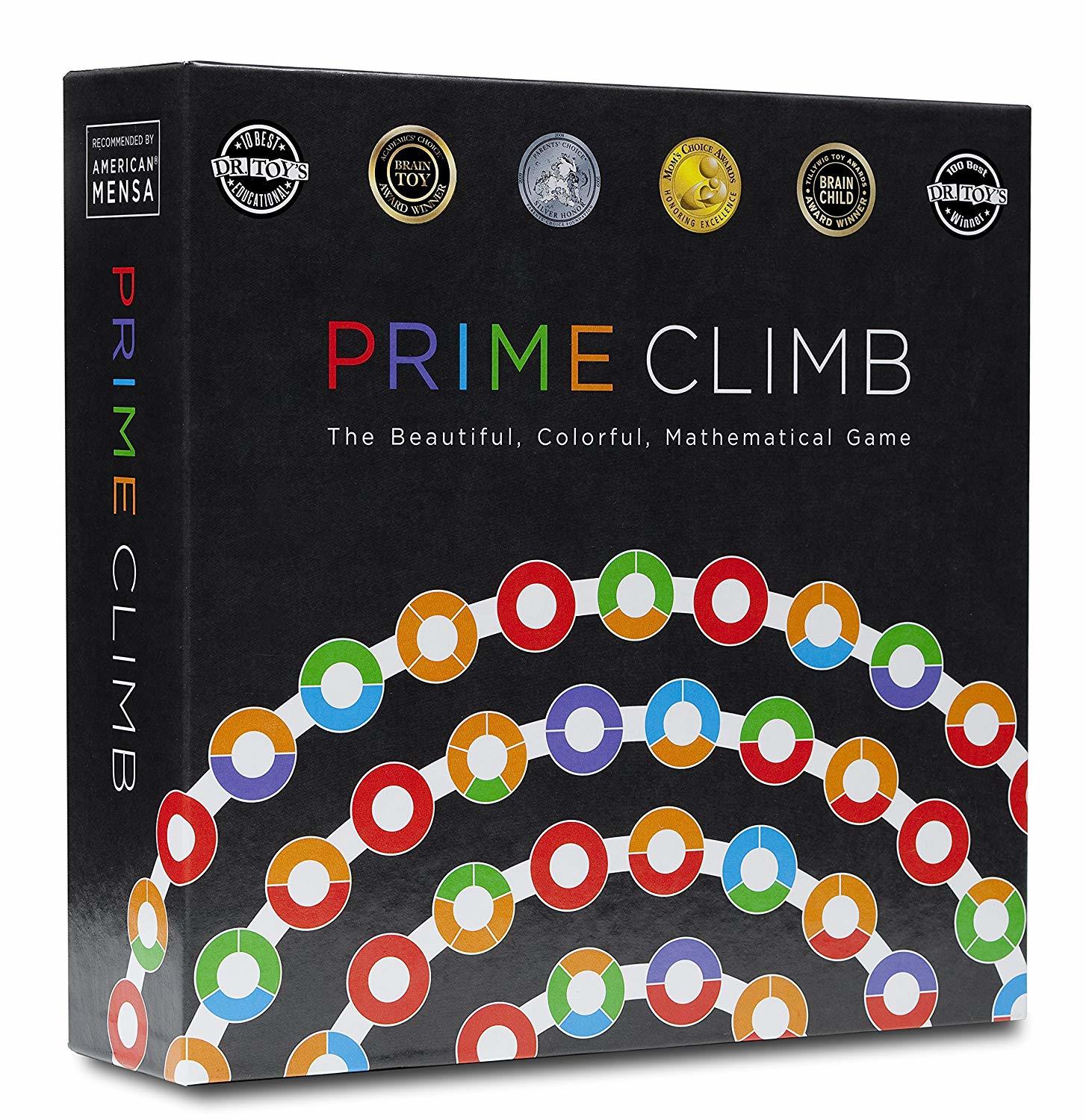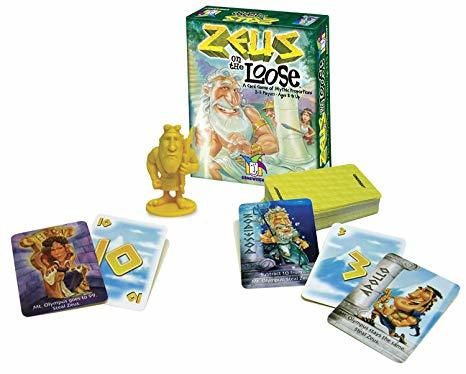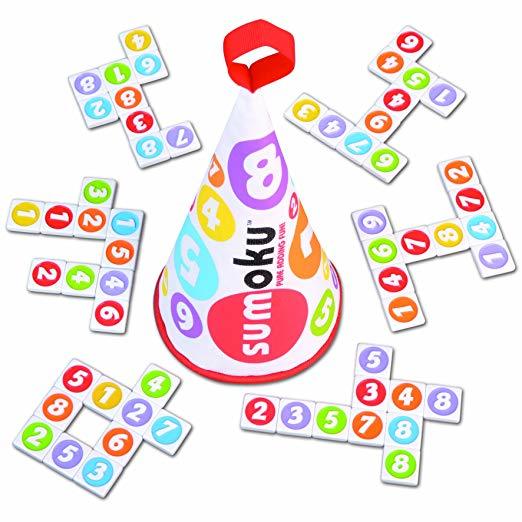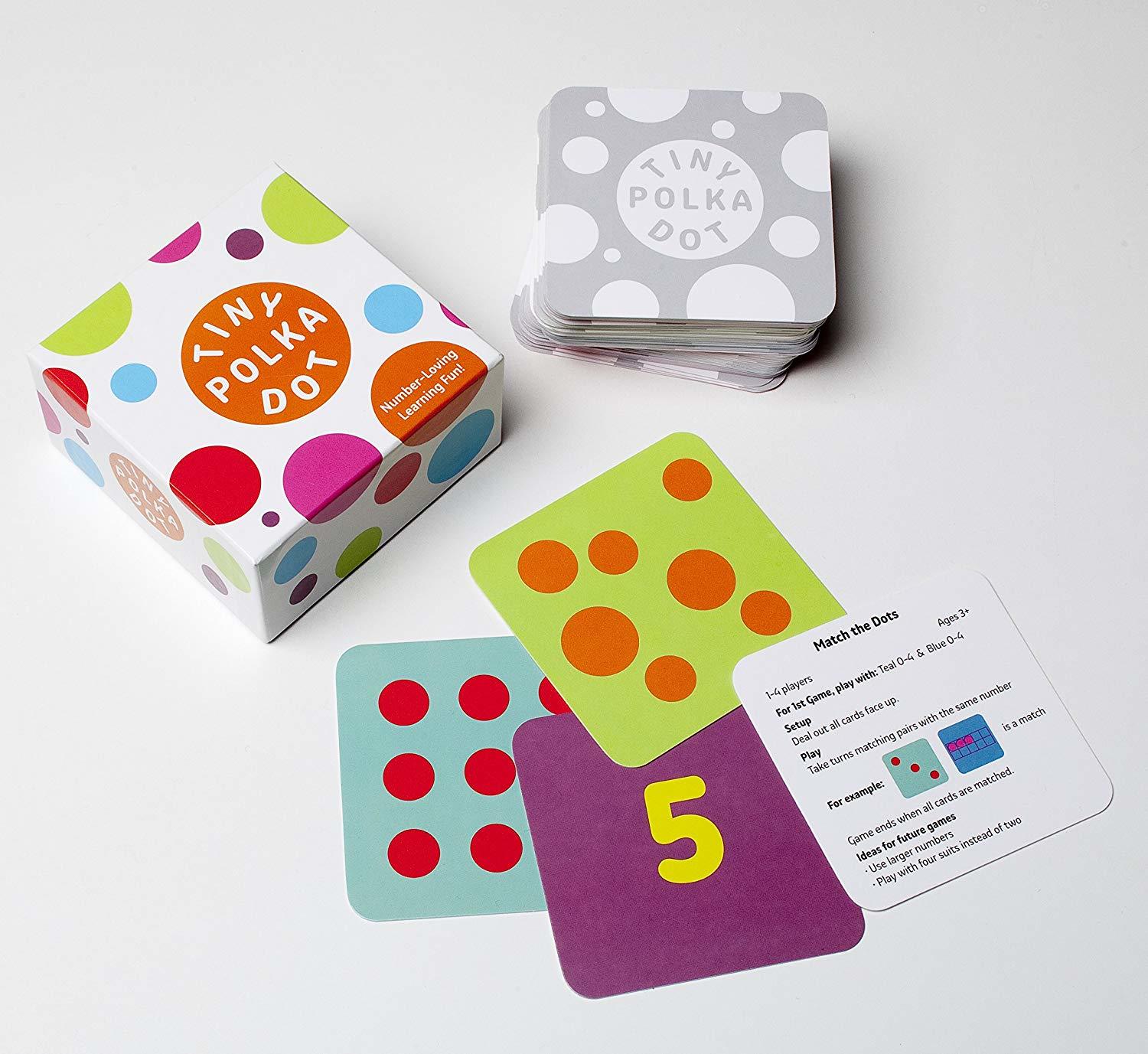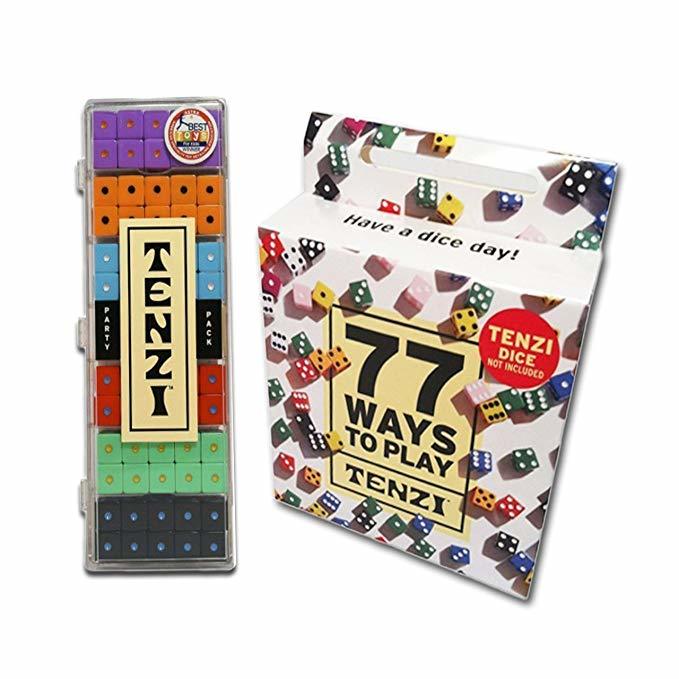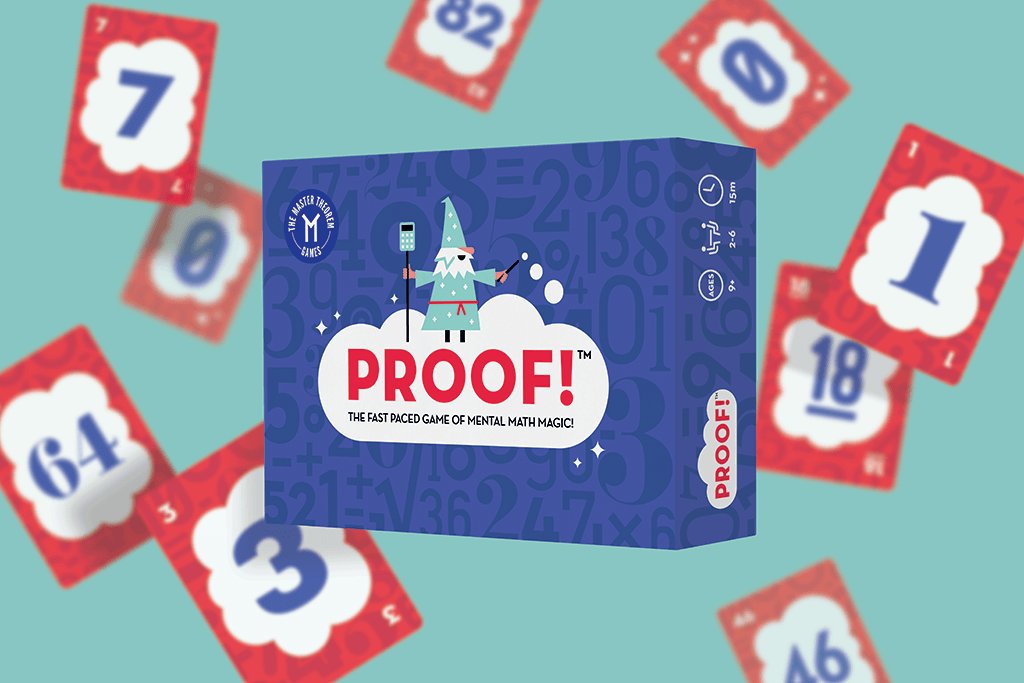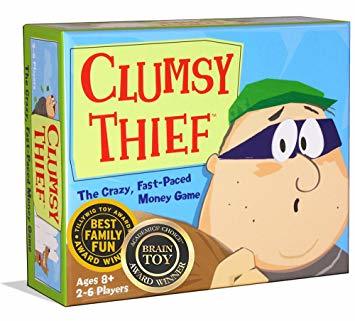We’ve always been a fan of using math games in our homeschool to practice math facts. Addition, subtraction, multiplication, division … if there was a game, I wanted to play it instead of reviewing in more conventional ways.
I also wanted to find games that weren’t “just” practice … but also were fun and had great replay value.
We’ve tried a lot of games over the years, and only a few have really hit the mark with me and my kids.
Some of these work great for little kids. Others you’ll need your kids to be in elementary math or higher.
And some work great for kids who are all ages with their math. Those are my favorite because everyone can play and have fun!
These are the best math games that we’ve played over and over in our homeschool.
(And don't forget to check out my review page for games and books we love in every homeschool subject.)
7Ate9 is a fast-paced math card game that reinforces addition and subtraction skills.
I love this game because it reinforce mental math in a non-linear way -- great for my “different-thinking” kids. AND it’s fun enough that we pull it out during family game time, not just when we want to do school.
Check out my full review of 7Ate9 HERE or watch the video review below.
Prime Climb is a visually stunning math game that teaches fundamental pre-long division skills, including factors, multiples, and primes.
There’s NO reading in this game so my kids could play easily even if they struggled with words. And the game is so clever in how it visually connects different numbers, I found MY brain learning all sorts of amazing mathematical connections that I hadn’t realized before.
Check out my full review of Prime Climb HERE or watch the video review below.
Zeus on the Loose is a math card game is based in Greek mythology and reinforces addition, subtraction, and skip counting up to 100.
I love how simple it is to play. I love the graphics. I love the history and language arts element. And I love how even my non-mathy girl was willing to play.
Check out my full review of Zeus on the Loose HERE or watch the video review below.
In Sumoku, you review math multiples using a Scrabble-like format.
Not every kid in my home liked this game, but I was surprised that it was my non-mathy but pattern-loving kid who asked to play it the most. Because it focuses on one skill AND because it’s slower paced (read: no speed in this game), I think it appeals to a different kind of learner.
Check out my full review of Sumoku HERE or watch the video review below.
The visually exciting cards in Tiny Polka Dots help build number sense for preschool kids and kids with special needs.
Polka Dots is made by the same game designer that made Prime Climb, so the minute I saw it, I knew that the quality and the graphics were going to be superb. I was thrilled to also find that the variety of cards and the different ways of playing also far exceeded my expectations.
There are soooo many things you can do with these cards -- from learning to count, to visually practicing basic addition and subtraction, to finding number patterns.
Seriously -- I feel like the possibilities are endless.
(I loved this game so much, I bought two copies even though my kids no longer needed to really learn these skills. One I gave to my sister who uses it all the time with her preschool aged kids. The other I’m saving … I’m SO excited to be able to put it to really good use when I start to have my grandkids come over.)
At first glance, Tenzi seems like a simple game ... roll 10 dice and try to match the instructions on one of the cards.
But with so many options (many of which require some kind of math), this is a game that kids of all ages can enjoy playing together.
Some cards require you to color or pattern sort. Other cards require you to add or subtract or find multiples.
You can buy the Tenzi cards separately if you already have dice -- but remember you'll need TEN of one kind for each person playing. I did not buy Tenzi dice when we purchased the cards. Instead, we bought a set of 10 dice like this to save money and to get more dice.
The original game is fast-paced, with you racing against your opponent(s) to get what the card explains. However, not all my kids love competition, so we've played where the goal is for everyone to get their card ... and we all help each other.
And you have the added bonus of acquiring a large number of dice, which opens you up to so many additional (no pun intended!) ways to do math without any specific game. From color sorting for preschool kids to crazy math combinations for older kids, this game has a TON of great ways to play with it!
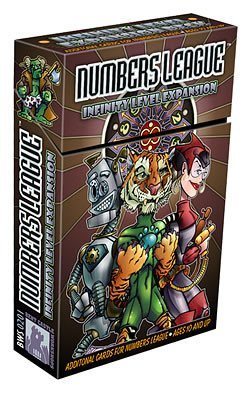
Superheroes, Villians, and family time! The coolest part of playing mental math games is that your kid is engaging more parts of their brain when they play.
Another math game that I find different from all the others AND it definitely will work your mental math muscles.
It is so much better than trying to teach a skill. This is how to make mental math fun! Love this game.
Other Fun Math Game Options
We don’t own the rest of these games, but they look like sooooo much fun. I wish I had an unlimited budget so that I could just buy and try every game out there.
From what I can tell, these games would check all the boxes for me and are definitely on my short list.
(Some of these are geared toward math skills that are below where my kids are now, but again, I’m hoping that grandkids will be in my future in the next few years … so we get to start the learning fun all over again!)
Proof! is a math game that helps practice mental math skills with all different kinds of equation combinations.
At the most difficult level, you can use all four basic operations, plus square roots and other higher level math.
However, it's easy to simplify the game to only do addition and subtraction, for example, although you might have to removed some cards.
In the easy-to-learn game Clumsy Thief, kids match cards to create piles that add up to 100.
This has a speed element, so not all of my kids would have loved it. But I love the simplicity and learning how the different 5 combinations add up.
This game has been popular enough, that they've also made several variations that may also be interested in.
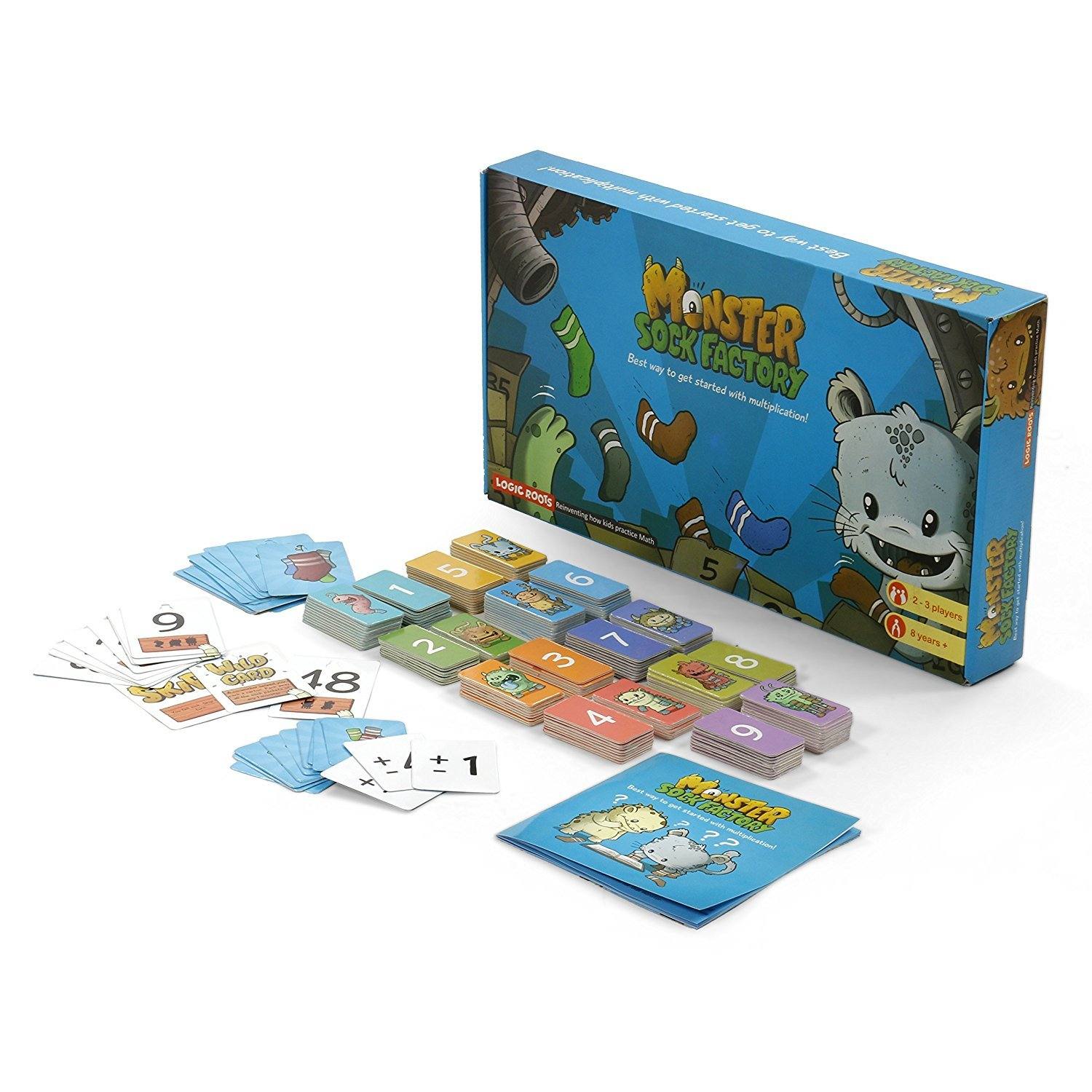
Monster Sock Factory appeals to me because it review multiplication by focusing on making groups ... which is another way of saying multiples.
You're packing socks based on the the number of legs on your monster, so the variations are endless each time you play.
I love the shape of the cards and the graphics. And I love the name! (What is it about "monster" that just makes things seem like they'll be more fun?)

Superheroes, Villians, and family time! The coolest part of playing mental math games is that your kid is engaging more parts of their brain when they play.
Another math game that I find different from all the others AND it definitely will work your mental math muscles.
It is so much better than trying to teach a skill. This is how to make mental math fun! Love this game.
If you want to check out awesome homeschool resources for other subjects, check out my review page for games and books and toys for every homeschool subject.
Want tons of FREE resources to
help your homeschool?
Save for later by pinning to your favorite Pinterest board!
